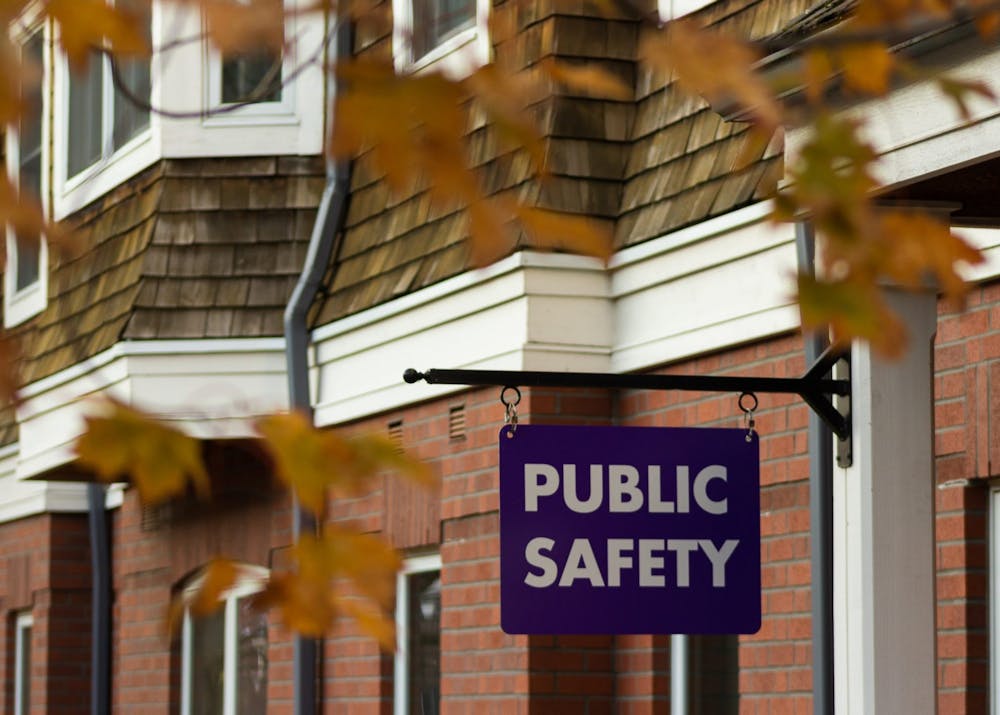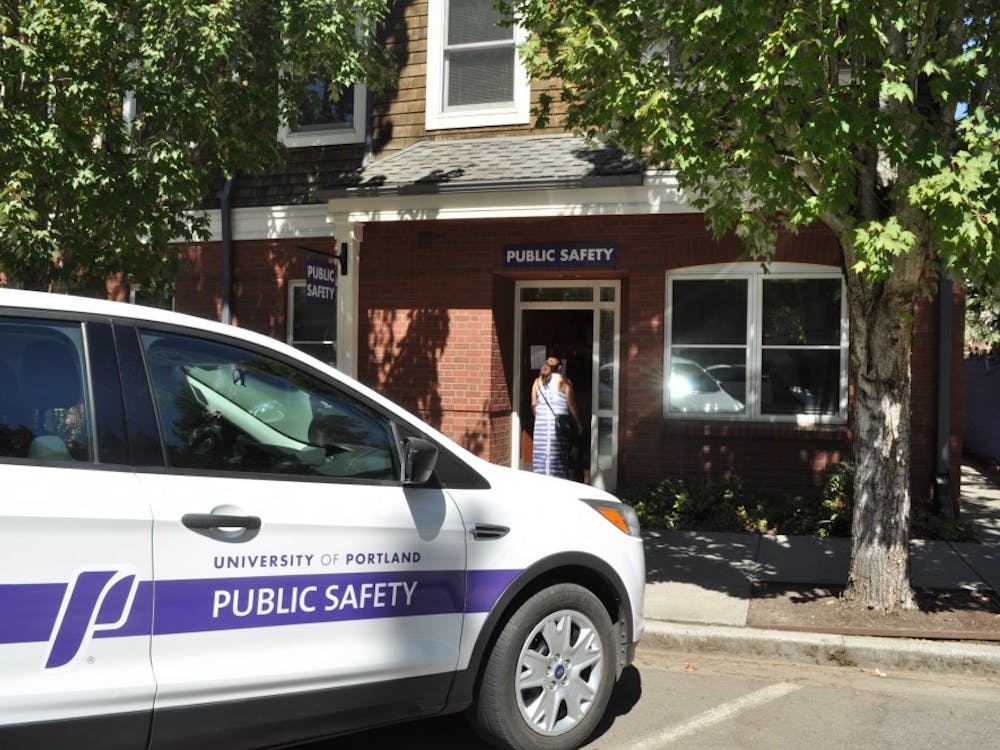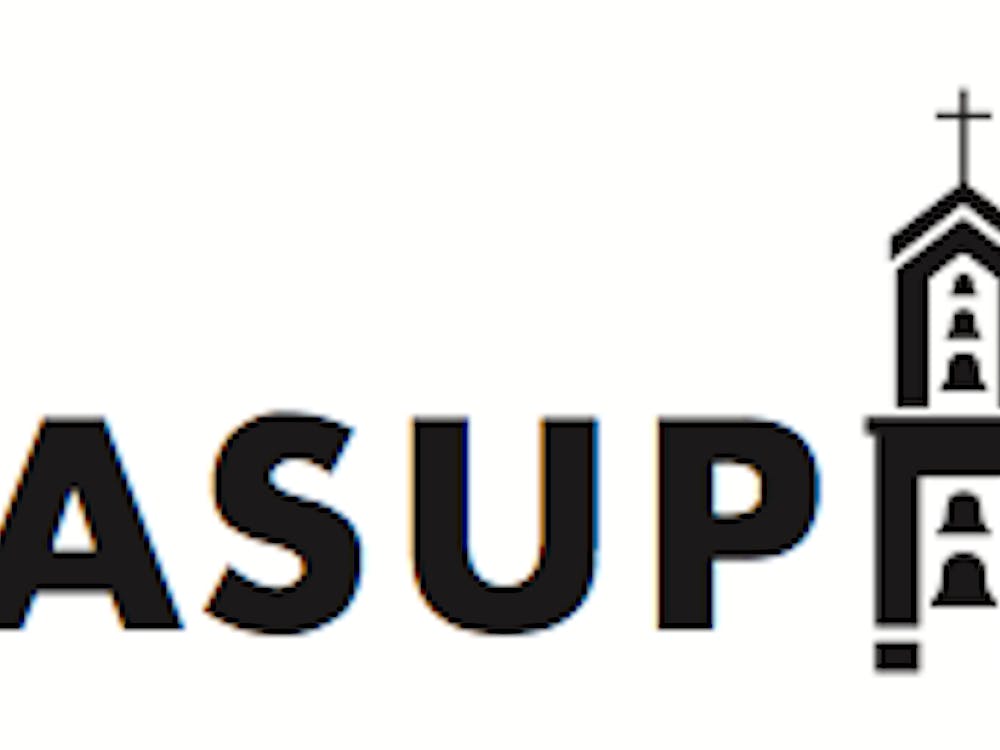The 2018 Annual Crime and Fire Report, released Oct. 16, shows an increase in reported sexual assault and a steady increase in drug law violations over the past few years. This report is released every year in accordance with the Clery Act, a federal law that requires all colleges and universities to compile crime information about their campuses and release it to the public. The act also requires a Daily Crime and Fire Log.
Only crimes that have been reported to Public Safety, Title IX or other university departments are included in the report. The report is also limited to three areas: on campus, off-campus property owned by UP like university-owned housing, and property immediately bordering campus. These restrictions are set by the Clery Act.
In the latest Clery report, sexual assault includes rape, forcible fondling, incest and statutory rape. Reports of forcible fondling went from two in 2017 to nine in 2018, the most significant increase in the report.
Forcible fondling is defined in the report as: “The touching of the private body parts of another person for the purpose of sexual gratification, forcibly and/or against that person’s will; or, not forcibly or against the person’s will where the victim is incapable of giving consent because of his/her youth or because of his/her temporary or permanent mental incapacity.”
According to Director of Public Safety Sara Westbrook, increases in sexual assault reports could be influenced by the strengthening of resources at UP and the willingness of students to report it. Any sexual assaults reported off-campus are not included in the report unless they occur on university-owned property, and many sexual assaults may go unreported.
“I want this to be as accurate as possible, but it’s terribly important that each reporting party has the decision on what they want to report and how much detail they want to give,” Westbrook said. “I know I’ve heard some people say ‘we know there’s more than that.’ Well, I think there’s more than that, but people have to give enough information.”
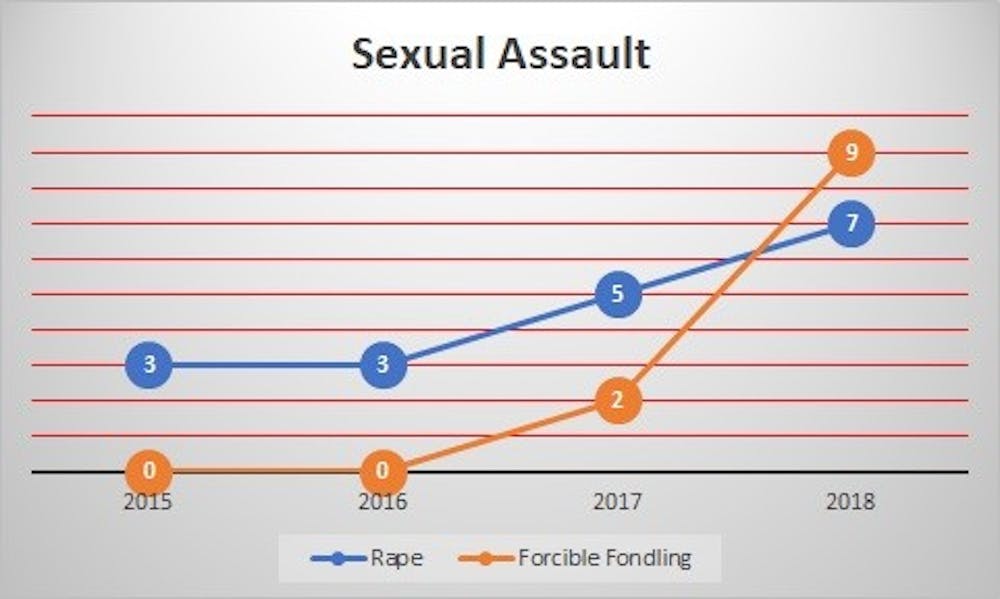
Source: 2018 Annual Crime and Fire Report. Chart by Austin De Dios.
When Public Safety compiles the sexual assault statistics for the year, the department includes not just the cases reported to them, but also reports made to other campus departments including Title IX, which gives Public Safety annual data on cases that have been resolved.
Public Safety’s role in sexual assault cases has changed in recent years. The department no longer investigates sexual assaults. They can take the report, but the investigation goes to the Title IX office. The reporting party is also free to ask Portland Police to investigate.
“They’re in the driver’s seat,” Westbrook said. “I mean, let them be empowered, or empower them to run the whole investigation, if you will, by how much information that they want to give and what they want to have happened to the investigation. All that helps, I think, make it easier to be a reporting party.”
Drug law violations have been increasing steadily since 2015, which was the year recreational cannabis became legal in Oregon. There was an increase of 15 reports between 2017 and 2018. The increase could be caused by rising drug usage across the country, Westbrook said.
There were also arrests made in 2017 and 2018, both related to drugs. Public Safety does not have the authorization to make arrests, so Westbrook said Portland Police made the arrests. Both arrests were on campus.
There are 50 fewer liquor law violations in 2018 than in 2017. The data from 2015 is much lower than those of the following years. This is likely due to a change in 2015 of how the reports are made through Student Conduct.
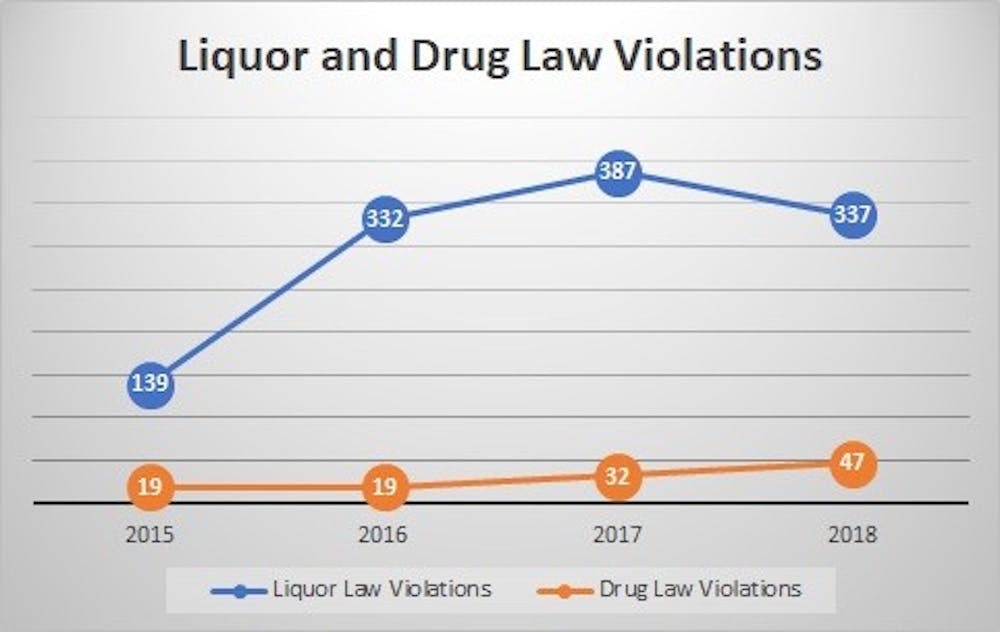
Source: 2018 Annual Crime and Fire Report. Chart by Austin De Dios.
All other crimes recorded in the report have shown no significant changes. The spike in weapons policy violations and stalking in 2017 was noticed last year, and it was considered random according to former Director of Public Safety Gerry Gregg. For crimes committed off-campus, Public Safety will contact the Portland Police to get the report, Westbrook said.
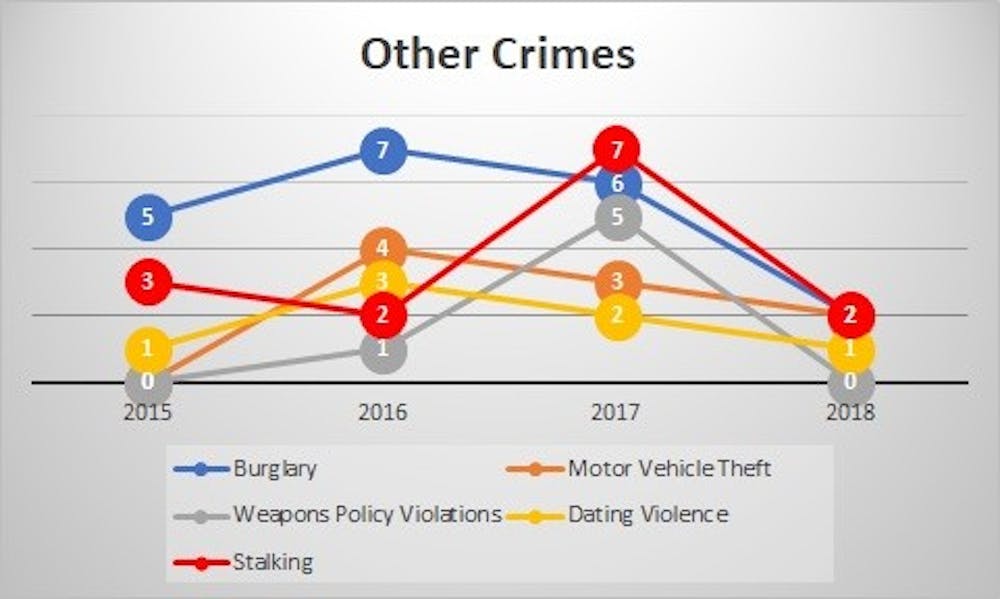
Source: 2018 Annual Crime and Fire Report. Chart by Austin De Dios.
Westbrook will start preparing for 2019’s report in January. Public Safety works with Title IX, Student Conduct and the Health and Counseling Center to collect the data.
“I think it’s important that students and their loved ones know what the facts are as far as crime and fire issues that have and have not happened on the campus,” Westbrook said. “It’s a part of the transparency.”
Austin De Dios is a reporter for The Beacon. He can be reached at dedios22@up.edu.



